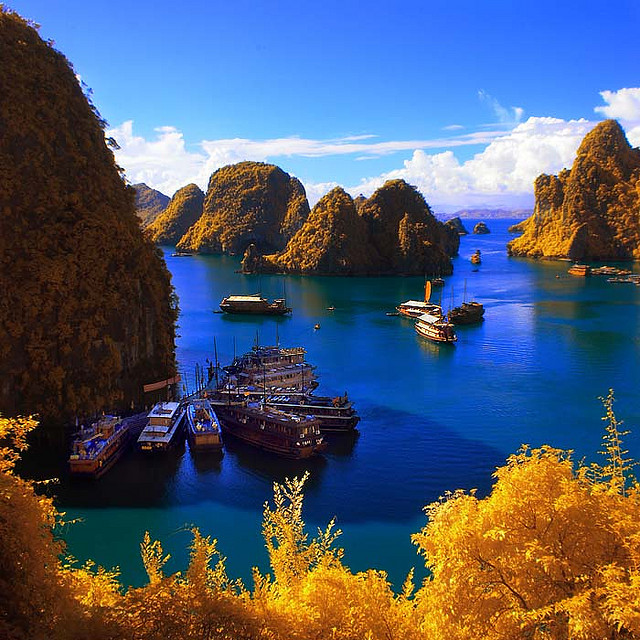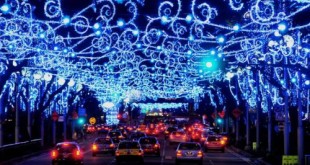Bangladesh is an Indian subcontinent country pulsating with potential in the IT and business process outsourcing industry. Despite these very modern endeavors, Bangladesh remains true to its heritage with the celebration of its time-honored festivals that are both religious and national in nature. Below are Bangladesh public holidays 2014. (Islamic festivals are to be confirmed with the local sighting of the new moon.)
Eid Milad un-Nabi – Monday, 13 January 2014
”Jasne Julush” processions make traffic congested on this day when the birth and death anniversary of Prophet Muhammad is commemorated. These processions, made colorful with Bengali flags and banners with Islamic scripts, are prayer processions seeking forgiveness of sins and imploring for favors.
Shahid Dibash Day – Friday, 21 February 2014
Also known as the Language Martyr’s Day, this day commemorates the 1952 protests to use Bangla, instead of the elite-spoken Urdu, as the national language. The struggle for independence against Pakistan came forth as a result of this demand for national language. Martyrs are honored on this day in the Shahid Minar (Martyrs Monument) where wreaths are laid and the red-and-green Bangladeshi flag is lowered to half-mast. To reinforce the use of Bangla as a national language, there are essay-writing contests held in schools all throughout.
Bangabandhu (Father of the Nation Birthday) – Monday, 17 March 2014
Sheikh Mujibur Rahman, regarded as the Father of the Bengali Independence and friend of the Bengal (“Bangabandhu”), was born on this day in 1920. To remember his pivotal role in the struggle for independence from Pakistan, poetry readings, cultural presentations and wreath-laying ceremonies in front of his statues are held on this day.
Shadhinota Dibôsh – Wednesday, 26 March 2014
The National Day marks the struggle for independence from Pakistan which started on this day in 1971. The National Martyrs’ Memorial near the capital, Dhaka, sees massive participation because of fairs and concerts that are held after the formal ceremonies. A 31-gun salute is fired at dawn to honor and remember the contributions of fallen men and women who gave their lives for the independence.
Poila Baisakh (Bengali New Year’s Day) – Sunday, 13 April 2014
The Bengali equivalent of a spring festival, Naba Barsho, as it is known locally, marks the start of the Bengali cropping season. As with the Western spring festival, Bengalis clean up their homes, put on new “sarees,” their traditional garments, adorn themselves with gems, and give each other sweets, gifts and greeting cards. On this occasion, younger members of the family seek blessings from their elders. Poila Baisakh is a joyous occasion as people sing, dance and engage in merriment until daybreak.
Labor Day – Thursday, 1 May 2014
Bangladesh joins the international community in honoring the social and economic contributions of its workers, especially that these (outsourced) workers are making bigger impacts in Bangladesh’s modern economy.
Boishakhi Purnima – Monday, 5 May 2014
More popularly known as Wesak or Buddha Purnima, “Bhikkus” or Bengali monks celebrate the birth, enlightenment and death of Buddha by offering flowers, lighting candles and burning incense before the statues of Buddha, and watering the Bo tree under which the Buddha achieved enlightenment. The busiest temple on this day is in Chittagong Hill Tracts and Cox’s Bazaar.
Shab-e-Barat – Sunday, 15 June 2014
It is on this day that Allah is said to write the destinies of each one in the coming year, so Bengali Muslims pray in earnest on this day for his blessings and forgiveness. Families also take this time to remember their departed and visit their graveyards.
Jamat-ul-Bida – Friday, 25 July 2014
Also called Jumu’ah-tul-Wida, the Friday of Farewell is marked by the faithful in submissive worship, a ritual called “ibadah” in anticipation of the end of Ramadan.
Shab-e-Qadar – Wednesday, 23 July 2014
“Quran Khawani” and “milad” recitals are performed throughout the country to mark the day on which the first verses of Quran were revealed. Graveyards come alive on this day as families visit their departed to implore their blessings.
Eid-ul-Fitr –Sunday to Tuesday, 27 to 29 July 2014
To mark the end of fasting, Muslims assemble for “jamaat” or Eid prayers in mosques, the most crowded of which is in Baitul Mukarram in the capital. Alms-giving is practiced on this day. On the festive side, Eid-ul-Fitr is celebrated for three days with traditional banquets, henna painting, and imploring the elders – touching their feet – for blessings.
National Mourning Day – Friday, 15 August 2014
Sheikh Mujibur and his family were assassinated on this day in 1975. He was the first president of Bangladesh and revered as the Father of the Nation. Wreaths are laid in his tomb in Tungipara in Gopalganj and flags are brought to half-mast to mourn his passing.
Janmastami –Sunday, 17 August 2014
The Bangladeshi celebration of the birth of Krishna, a major Hindu god, is celebrated with fasting and prayers until midnight when Krishna was born.
Bijaya Dashami – Thursday, 25 September 2014
This public holiday is the Bengali equivalent of Durga Puja. The goddess is worshipped in makeshift prayer rooms called “pandals” and “puja mandapa,” and skits depicting her life are performed around these structures. A tradition of daughter-homecoming to her father’s house continues to this day.
Eid ul-Azha – Friday, 3 October 2014
“Qurbani” or the sacrificial ritual of the animal is performed on this day to commemorate the willingness of Abraham to sacrifice his son Ishmael. Be forewarned that millions of livestock are slaughtered on this day in ancestral villages, leaving Dhaka, the capital, relatively deserted, but the rest of the countryside practically bathed in blood.
Ashura – Monday, 3 November 2014
On this day, Shiite Muslims commemorate the death of Imam Hussein whom they consider the founder of their religion. Devotees celebrate the day by walking on live charcoal and flagellating themselves.
Bijoy Dibosh –Tuesday, 16 December 2014
Victory Day is celebrated with a 31-gun salute and laying of wreaths at the National Memorial Monument. It is on this day in 1971 that Bangladesh finally broke free from Pakistani rule after a 9-month independence movement which started on March 26 (celebrated as National Day).
Christmas Day – Thursday, 25 December 2014
Bengali Christians celebrate the nativity of Christ with “Bara Din,” or literally, Big Day mass. Bengali cakes called “pithas” are the centerpiece on this day in Christian households.






